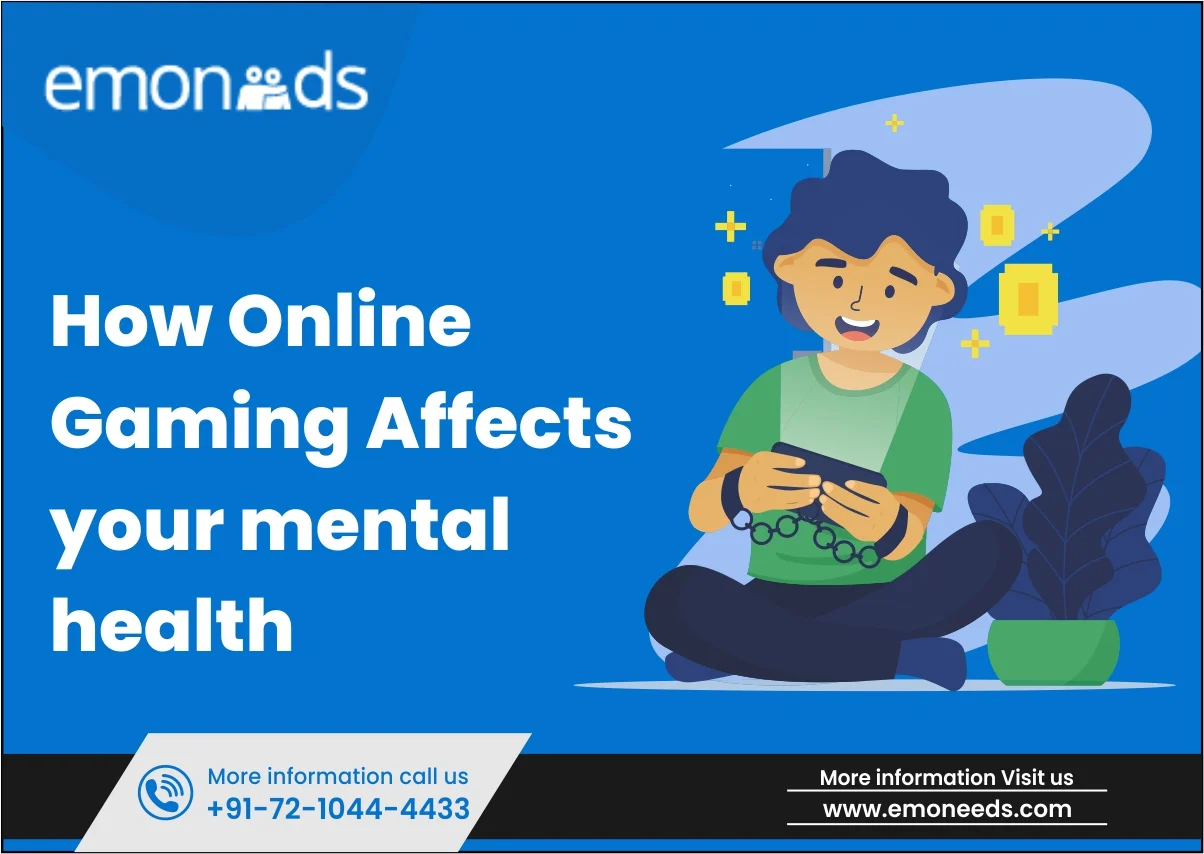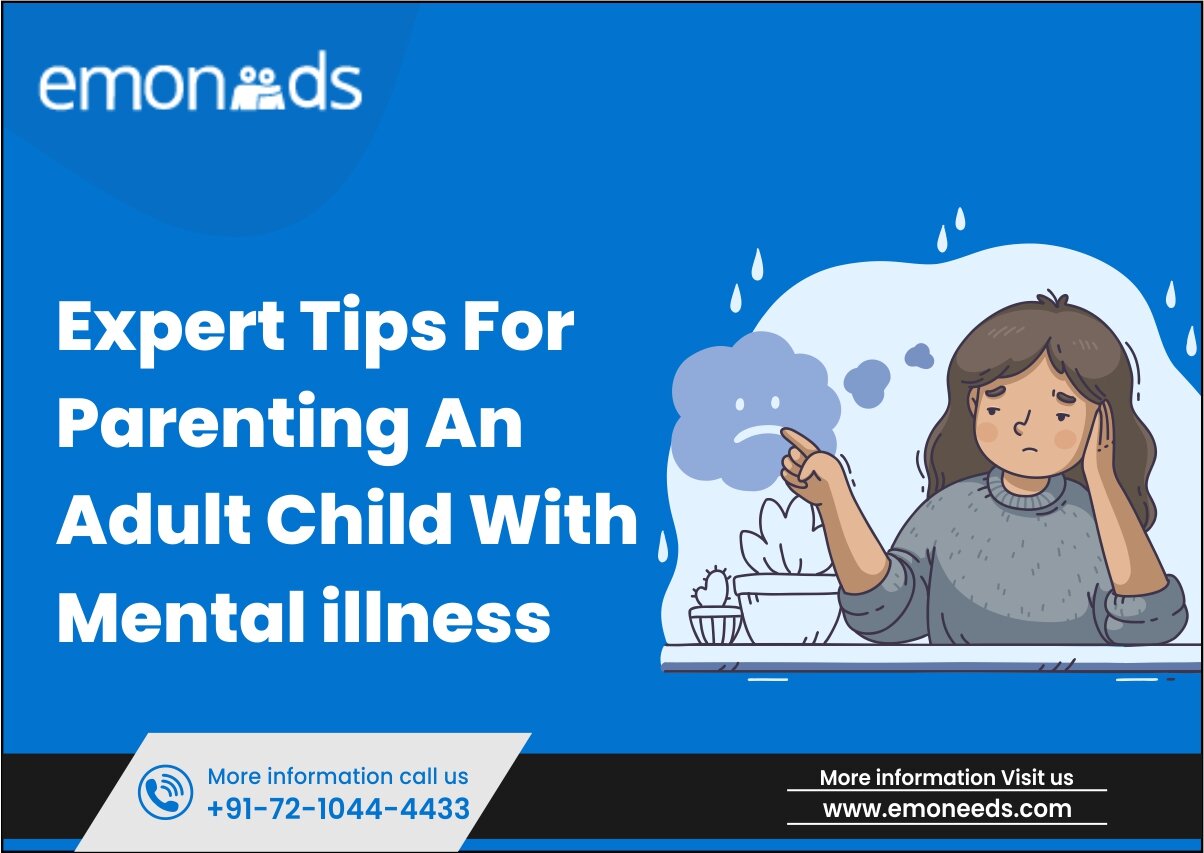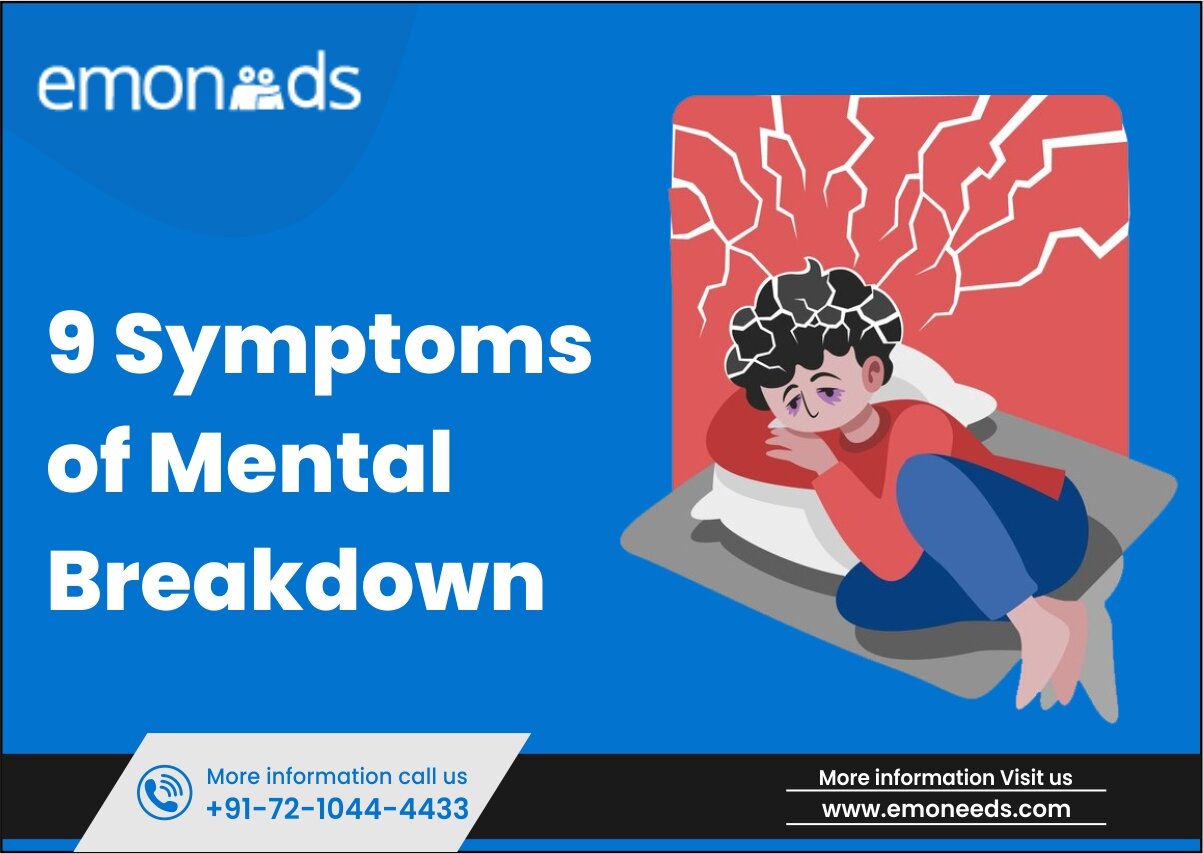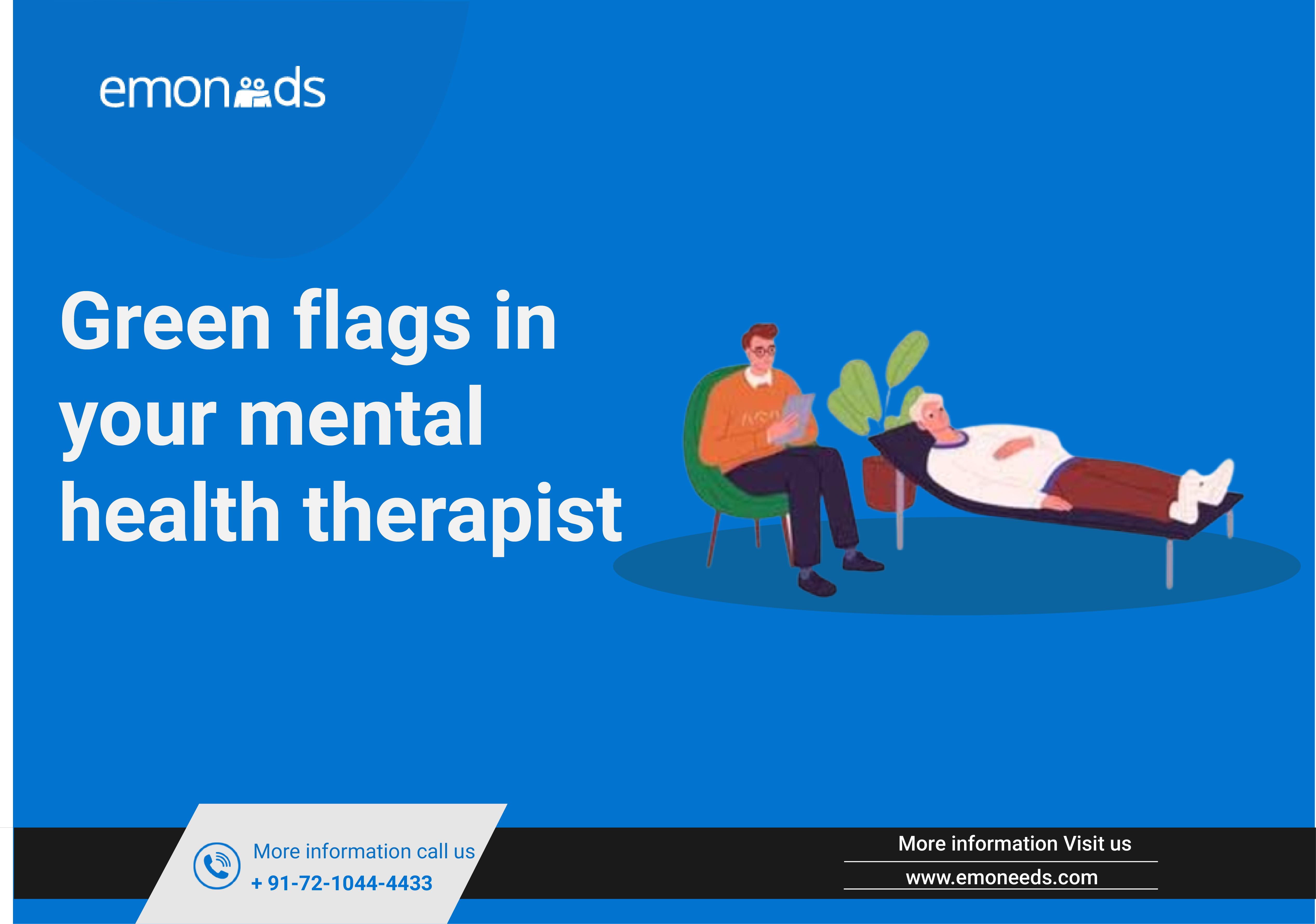
Online gaming has emerged as a widespread digital pastime, drawing enthusiasts globally. It offers a virtual realm where individuals immerse themselves in diverse interactive experiences. The allure lies in the immersive nature and the connections forged in this digital landscape. However, this blog “How Online Gaming Affects Your Mental Health” seeks to delve beyond the surface, aiming to uncover the intricate relationship between online gaming and mental health. The expert at Emoneeds believes that understanding the impact of prolonged gaming sessions on mental well-being is pivotal in navigating its effects on individuals’ overall health.
The Good and the Bad
In the realm of online gaming, emotions can be as diverse as the games themselves. On the positive side, gaming offers a much-needed escape from the rigors of daily life, providing a virtual sanctuary where stress dissipates, and relaxation takes center stage. Beyond solo adventures, it acts as a social catalyst, fostering meaningful interactions and community bonds that traverse geographical boundaries.
However, like any good thing, excess can tip the scales. Excessive gaming can metamorphose into addiction, with signs manifesting in obsessive gameplay and an increasing inability to disengage. This addiction often comes at the cost of real-world responsibilities, creating a stark imbalance. Neglecting family, work, and personal commitments becomes a red flag, signaling that the virtual world might be encroaching too far into reality. Striking a delicate equilibrium between the positive aspects and the pitfalls is key to maintaining a healthy relationship with online gaming.
The Brain Behind the Screen
Dopamine’s Role in Gaming
Gaming triggers our brain’s reward system, flooding it with dopamine when we achieve milestones or conquer challenges. This surge of feel-good neurotransmitters keeps us engaged and eager for more. However, this very mechanism can pave the way for addiction, as the brain craves that dopamine hit, leading to dependency on gaming for satisfaction.
Stress from gaming
Intense gaming sessions can elevate stress levels, releasing cortisol, the stress hormone. While a moderate level of stress is manageable, prolonged exposure to high stress during gaming can have lasting impacts on mental well-being. It might manifest as increased anxiety, and mood disturbances, or even contribute to long-term mental health issues if left unchecked.
Understanding these neurological and stress-related aspects sheds light on the complex relationship between gaming and mental health, urging a balanced approach to gaming habits for overall well-being.
Online Communities: Friend or Foe?
Positive Aspects of Online Communities
Online gaming environments serve as hubs for building robust friendships and forging meaningful connections. They transcend geographical boundaries, uniting individuals with shared interests. Collaborative gaming experiences foster teamwork and cooperation, enhancing social skills and camaraderie among players.
Challenges in Online Interactions
However, these communities are not devoid of challenges. Cyberbullying, a prevalent issue, inflicts emotional distress and detrimentally impacts mental health. Moreover, toxicity within gaming communities, characterized by aggressive behaviors and hostility, poses a significant hurdle. Dealing with these negative aspects demands resilience and effective coping strategies to mitigate their adverse effects on players’ well-being.
Online communities wield both the power to unite and the potential to harm. Recognizing the positive aspects while addressing and combatting the challenges is crucial in fostering healthier and more inclusive gaming spaces.
Sitting Still Isn’t Great
Prolonged gaming adversely affects our bodies that often goes unnoticed. The hours spent hunched over screens impact posture, leading to backaches and strained muscles. This continual sedentary behavior isn’t just a physical concern; it intertwines with mental health too. Studies suggest a close link between extended periods of sitting and increased stress, anxiety, and even depression. The lack of movement doesn’t just affect our bodies; it also affects our minds. It’s like a domino effect—poor posture and physical discomfort seep into our mental well-being, leaving us feeling drained and tense.
Recognizing the impact of sitting still for hours on end is crucial. Introducing breaks, stretching routines, or simply taking short walks can counteract these effects, benefiting both our physical health and mental clarity. It’s about finding that balance between screen time and movement to support our overall well-being.
Sleep Deprivation and its Adverse Effect
Gaming profoundly influences sleep patterns, primarily due to prolonged exposure to screens emitting blue light. This artificial light messes with our body’s internal clock, disrupting the production of melatonin, the hormone that regulates sleep. Consequently, gamers often experience difficulties falling asleep or achieving restful sleep after intense gaming sessions. This disturbance in sleep quality doesn’t just impact our rest; it affects mental health and overall well-being.
Sleep deprivation can exacerbate feelings of irritability, anxiety, and stress. It impairs cognitive function, affecting memory, concentration, and decision-making abilities. Over time, these consequences create a ripple effect, impacting our daily lives and emotional stability.
Prioritizing quality sleep is crucial for maintaining mental wellness. Establishing boundaries around gaming sessions, especially before bedtime, can significantly improve sleep hygiene and contribute to better mental health outcomes.
Finding Balance
In the dynamic realm of online gaming, maintaining balance is key to safeguarding your mental well-being. Here are practical strategies to strike that equilibrium:
Setting Limits for Healthy Gaming Habits
Establish clear boundaries for gaming sessions, ensuring they don’t encroach upon other aspects of life. Consider:
- Time Boundaries: Allocate specific time slots for gaming, respecting commitments beyond the screen.
- Frequency Control: Limit the number of gaming sessions per day or week to maintain balance.
Adding Breaks and Physical Activity to Gaming Routines
Integrate regular breaks during gaming marathons to recalibrate and rejuvenate. Blend physical activity with gaming routines by:
- Scheduled Breaks: Pause gaming sessions every hour for a brief stretch or walk.
- Active Gaming: Opt for games that encourage movement or invest in gaming-friendly exercises.
Knowing When to Seek Help for Gaming Addiction
Recognizing the signs of gaming addiction is crucial. Be mindful of:
- Withdrawal Symptoms: Feeling irritable or anxious when not gaming.
- Neglecting Obligations: Neglecting responsibilities, social life, or sleep due to gaming.
Seek professional assistance when gaming habits start to interfere significantly with daily life or mental health. Emoneeds offers tailored support for those navigating gaming addiction and seeking a balanced approach to gaming and well-being.
Conclusion
It is crucial to remember, gaming offers both relief and risks for mental health. Striking a balance is key. Embrace responsible gaming and self-care, setting boundaries for a healthy gaming routine. And if you’re seeking personalized mental health support, consider Emoneeds. With a dedicated team and tailored approaches, Emoneeds stands ready to assist you on your journey to a more balanced and fulfilling gaming experience while nurturing your mental well-being.




